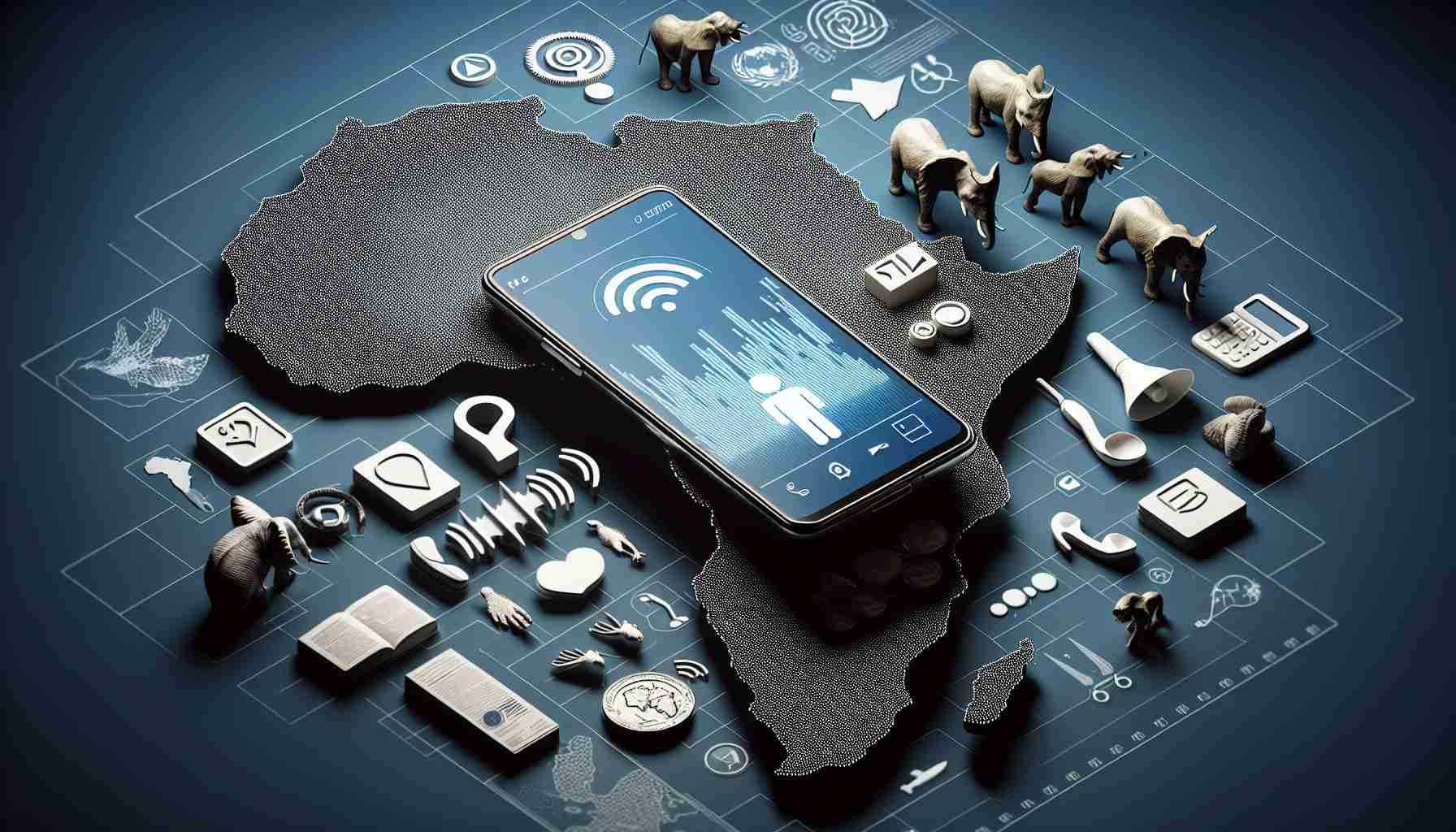Revolutionizing Hearing Health with Mobile Tech
A remarkable mobile application is turning smartphones into essential hearing test devices, offering a beacon of hope for the millions experiencing hearing impairments across Africa. Empowering individuals without medical expertise, the app serves as a first step in ear health diagnosis, simplifying the road to specialized treatment. This technological solution dovetails with the global wave of using innovation to address healthcare challenges, specifically where there is a shortage of medical facilities.
The wider dissemination of this tech tool is a pivotal move in addressing the continent’s auditory health dilemma. This stride goes beyond a simple remedy, becoming part of a broader scheme that aims to improve various aspects of healthcare services.
Mobile Application Accessibility and Challenges
The application permits non-medical personnel to undertake initial evaluations of hearing health, shifting the power of healthcare accessibility into the hands of many. Despite its clear benefits, such as accessibility and the early catching of auditory issues, the app must overcome several obstacles, including ensuring the widespread ownership of smartphones, educating users effectively, and addressing the diversity in language and cultural practices. There are also concerns about the ongoing care required after the preliminary screening, which can be a challenge in remote areas.
While the potential of this application is immense, skepticism regarding the precision of these app-based evaluations compared to traditional screening methods is prevalent. Other pressing issues include ensuring data privacy and providing equal access regardless of socioeconomic background.
Balancing Advantages and Hurdles
The dual nature—advantages and drawbacks—of utilizing mobile apps for hearing health is intricate but hopeful. On the bright side, it promises greater reach, cost savings, earlier detection for improved treatment, and empowerment through technology. On the other side, challenges such as the need for accuracy in casual settings, infrastructural support for follow-up care, and handling of health data privacy persist.
For a deeper understanding of health tech’s impact, seeking insights from leading organizations like WHO and GSMA can be enlightening, though always exercise caution with online information by verifying security and URL accuracy.
Advantages:
– Extended reach of healthcare in areas with limited medical infrastructure.
– Greater affordability in comparison to conventional diagnostic tools.
– Early interventions potentially leading to better health outcomes.
– Empowerment through technological education and utilization.
Disadvantages:
– Potential for inaccuracies in non-clinical surroundings.
– Reliance on access to smartphones.
– Educational demands for effective application use.
– Availability of subsequent medical care.
– Data privacy and security considerations.
Key Questions and Answers:
Q: What is the purpose of the mobile application discussed in the article?
A: The mobile application is designed to transform smartphones into hearing test devices, enabling initial ear health diagnosis and simplifying access to dedicated treatment, particularly in Africa.
Q: What are some challenges the app needs to overcome?
A: The app must address challenges such as ensuring widespread smartphone ownership, educating users, accommodating language and cultural diversity, providing follow-up care in remote areas, maintaining data privacy, and securing equal access across socioeconomic statuses.
Q: How does this app-based approach benefit users?
A: The app extends healthcare reach in under-resourced areas, offers a more affordable alternative to conventional diagnostic methods, enables early detection and intervention, and empowers users by incorporating technology into healthcare self-management.
Key Challenges and Controversies:
– Smartphone Ownership: Widespread access to smartphones is crucial for the app’s success, but not all populations in Africa have the resources to afford such technology.
– Educational Efforts: Users require proper training to use the app effectively, which may be complicated by illiteracy, language barriers, and varying levels of technology familiarity.
– Accuracy and Reliability: Skepticism about the precision of app-based evaluations in comparison to traditional methods is a central controversy.
– Health Data Privacy: Ensuring the confidentiality and security of users’ health data is a pressing issue, given the increasing threats to digital data.
– Post-Diagnosis Care: The availability of follow-up medical treatment after initial screening presents a substantial challenge, especially in remote areas with scarce healthcare infrastructure.
Related Links:
– For information about global health efforts, you can visit the World Health Organization (WHO).
– To understand the intersection of mobile technology and healthcare, refer to GSMA.
Advantages and Disadvantages:
Increased access to healthcare services through mobile technology is a noteworthy advantage, offering convenience and efficacy potentially leading to improved overall health outcomes. However, acknowledging the disadvantages is crucial for the responsible development and implementation of such a technology. These include concerns about app accuracy outside clinical settings, ensuring continued care, and protecting personal health information. Each aspect requires rigorous attention from developers, healthcare providers, and policymakers to ensure both efficacy and ethical integrity.
The source of the article is from the blog portaldoriograndense.com
